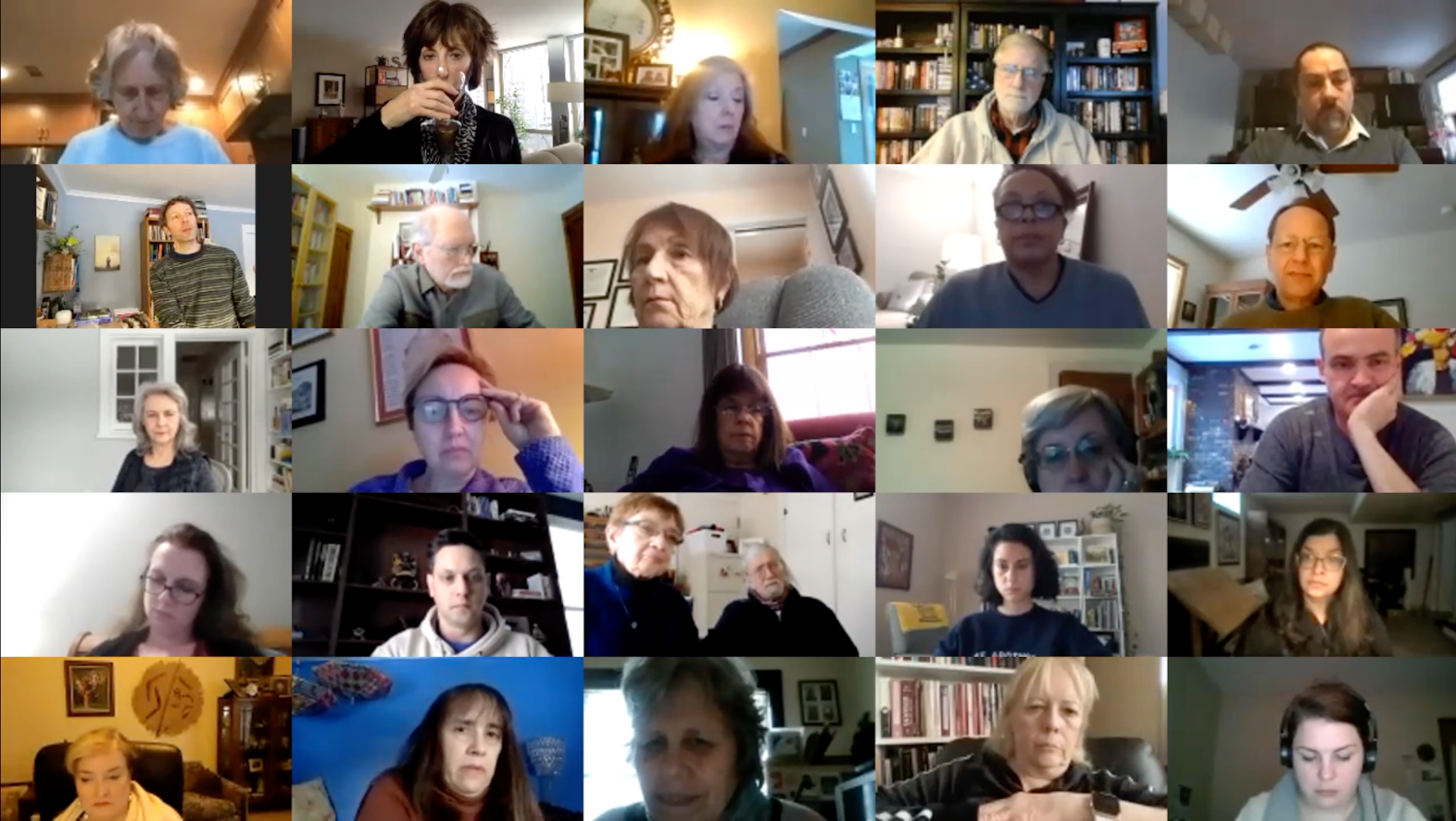February 9, 2021
Writing Critique Group…Is it for You?
by Tim Storm
 Thanks to Tim Storm for his time on February 7th for the Cocktails and Conversation event where we
Thanks to Tim Storm for his time on February 7th for the Cocktails and Conversation event where we discussed writing critique groups and writing buddies.
discussed writing critique groups and writing buddies.
Are they for you?
Maybe, maybe not.
In case you missed this event you can catch up on YouTube. Meanwhile, here are some notes from Tim:
Logic. Why get involved in a critique group or seek a writing buddy?
1. Language is social. If you're writing in a vacuum, it will be more apt to fail at its ultimate goal, which is to connect to and resonate with other people.
I think there are some projects that should be withheld from others until they have been fleshed out by the artist. If feedback is going to stop you or paralyze you, then wait until you have a little more confidence in your project.
But there's something to be said for getting accustomed to regular feedback because this vocation really requires a healthy attitude toward criticism (more later).
2. A regular commitment to producing writing is helpful. There have been times in my life when the only thing getting me to write was expectation from other people. I find it much harder to let down other people than to let down myself.
Benefits
1. Accountability. A regular critique group motivates you to get something done.
2. Practice with handling feedback. You need to get accustomed to it because you’ll need it during the editing/revision process in your dealings with agents and publishers, and in your examination of reviews and ratings. The writer can never really escape people assessing their work.
3. Instruction/Learning. A lot of craft books and writing instruction rely on exemplary work—work either commercially successful or critically acclaimed or both. And that's good. But what we don't often see is work in progress and writing with potential but not success. It's extremely instructional to be able to see writing that isn't working.
4. Developing your editing abilities. You might get good feedback but the true value in a critique group is in the muscles you work in giving critiques not receiving them.
Challenges
1. Tastes and personalities. A lot of us have been in a group with at least one person whose attitudes or approach differ radically from ours. That's not necessarily a bad thing but it’s a challenge to be aware of.
2. Plethora of opinion. Sometimes it can seem after a session that you have to go back to the drawing board. Feedback from one person can overwhelm; when it's three to seven people, it can be paralyzing. Diversity of opinion is a good thing, but it does require some work on the writer’s part to make sense of. (More on that later)
3. Fault finding. When you take your work to a group, the understanding is that they're trying to help you make it better. As a result, there's a focus on opportunities for improvement. In other words, faults, deficiencies, problems.
4. Time and energy. A critique group is not useful to you or to other people if you can't put in the time and energy to truly engage with the work you are critiquing.
How to give criticism
1. Be “unconfident.” Offer advice with some hedging language (maybe, possibly, perhaps); ask questions, be aware and remind the writer that you might be the only one who feels this way. You are not the arbiter of what’s good. You’re giving your impression. Honor the artist’s goals; don’t force your own upon them.
2. The basic approach should be to help. “How can we make this better?” The goal is to build people up, not to tear them down.
3. Put thought into and be specific about what’s working. That’s as important as what’s not working.
4. Focus on bigger stuff. You can mark up errors in punctuation and offer suggestions on word choice in the manuscript. But those things are rarely ever worth discussing in the group. Critique is not proofreading.
How to receive criticism
1. Be receptive. Most people notice. Don't get defensive or make excuses.
2. Take notes. It's impossible to assimilate all the feedback in the short time you have. Some of it will sink in later. Don't be afraid to ask for specifics, i.e.: “Can you mark a few of these for me?” And later, you’ll need some analysis of the analysis. That is, you’ll likely need to sift through the suggestions and figure out what is most worth paying attention to, etc.
3. Time. Getting a critique can be an emotional thing. Don't be reactionary. Allow yourself a day or two before being discouraged. Come back to the suggestions when you have some distance and when you’re less emotional.
4. Weigh opinions. The more you get to know people, the better since you have of their strengths and weaknesses as critiquers.

Tim is one of our very popular conference presenters. You can see him in March 2022 at Let's Just Write! An Uncommon Writers Conference.
T.D. Storm writes short stories and essays. His work has appeared in various journals and anthologies, including Black Warrior Review, Copper Nickel, and Literary Hub. He he has been a finalist in a number of contests, including the International Literary Competition at Salem College, which he won in 2013. He has an MFA in Writing from Pacific University.
Tim lives in Madison, Wisconsin, where he works as a writing coach and editor. You can learn more about his teaching and editing at stormwritingschool.com. Prior to his current work, he taught high school English for 15 years and briefly pursued an Olympic rowing berth.
Affiliates/Partners
Testimonials
Contact
Join CWA
Member Directory
My Account
Writers Conference
Presenters
Agents and Publishers
Pitch Sessions
Sponsors
Scholarships
Speaker Registration
Book of the Year
Spirit Award
First Chapter Contest
Resources
Home
Chicago Writers Association
info@chicagowrites.org
Make a Difference!

